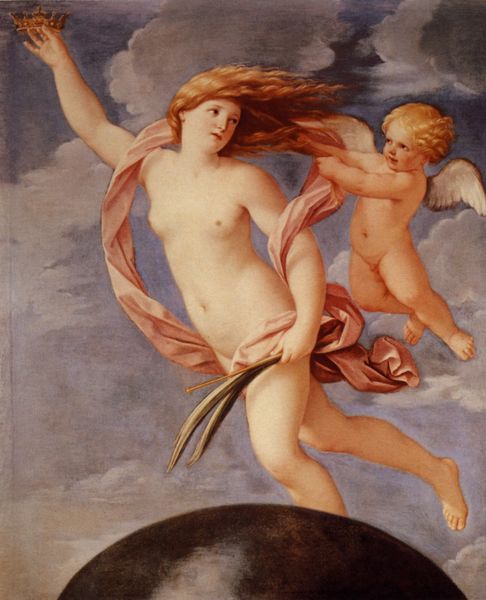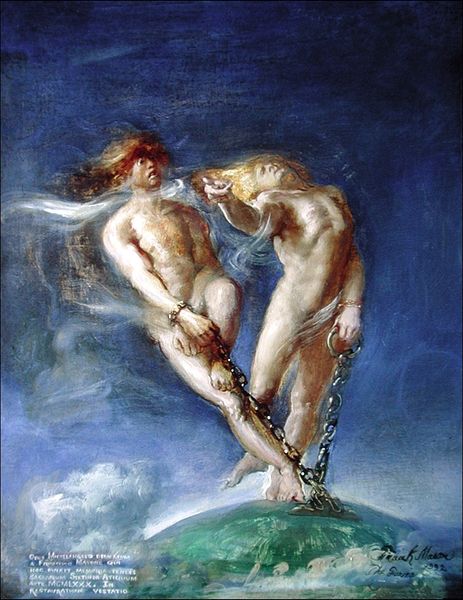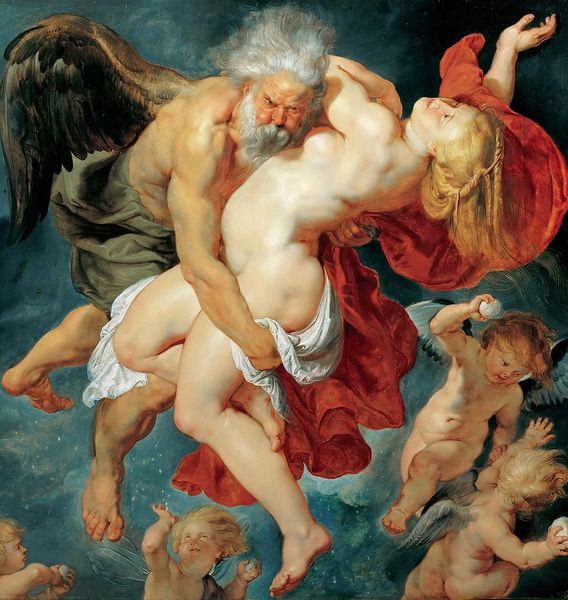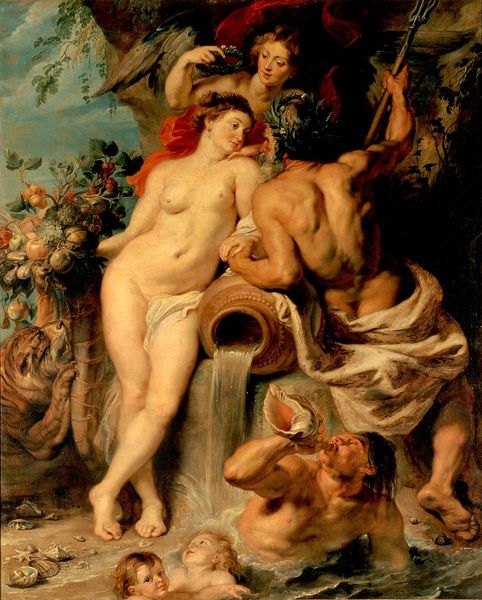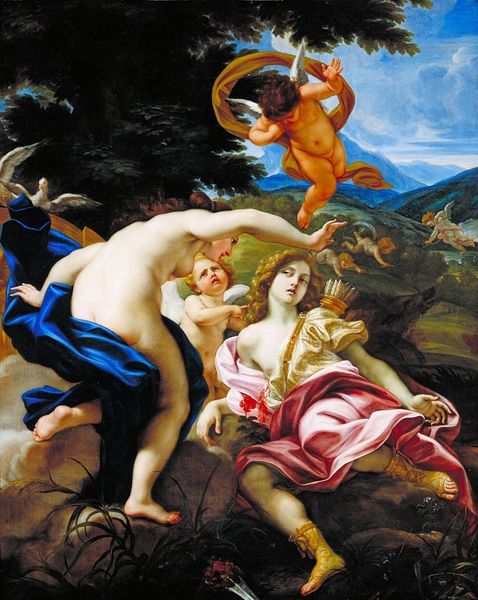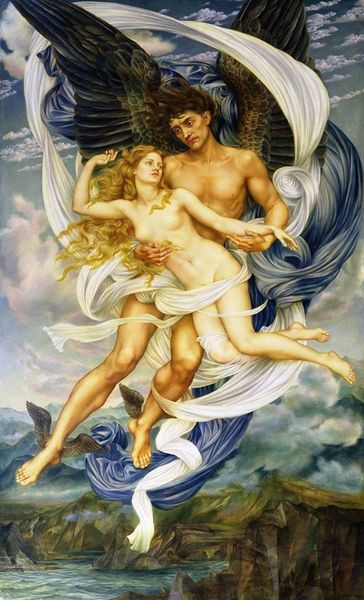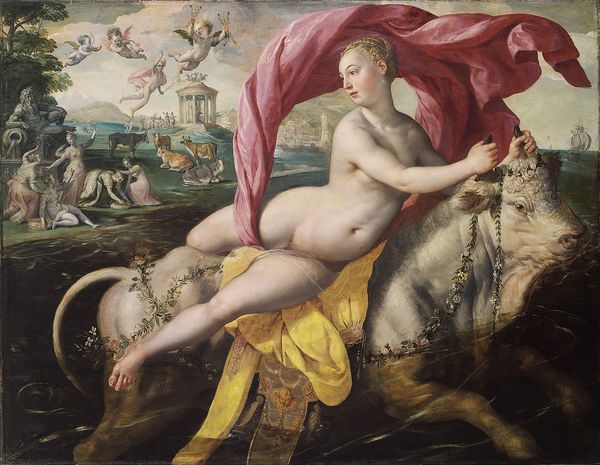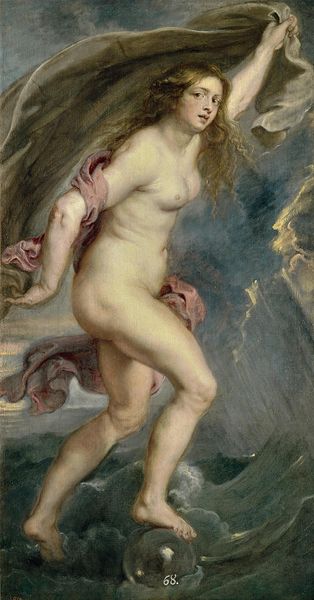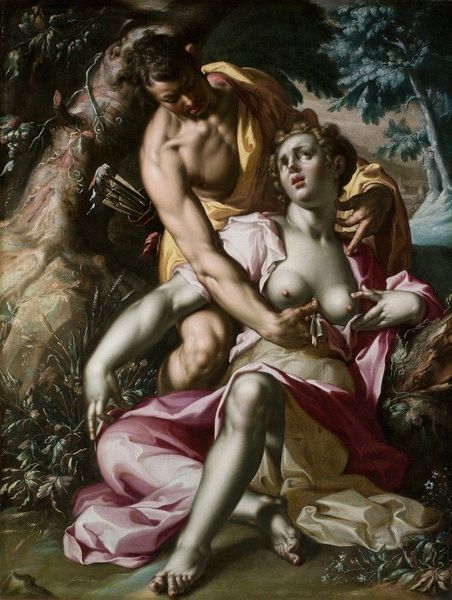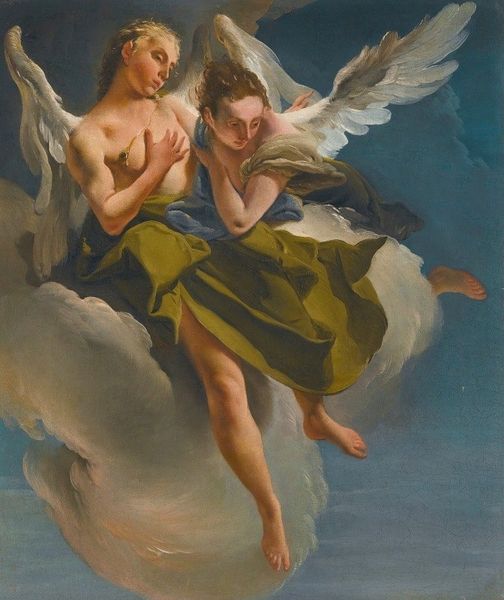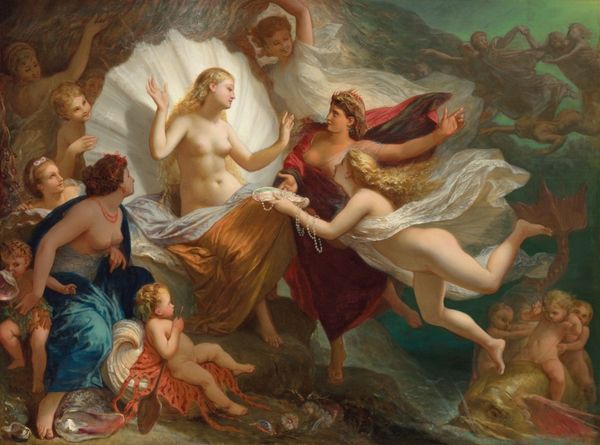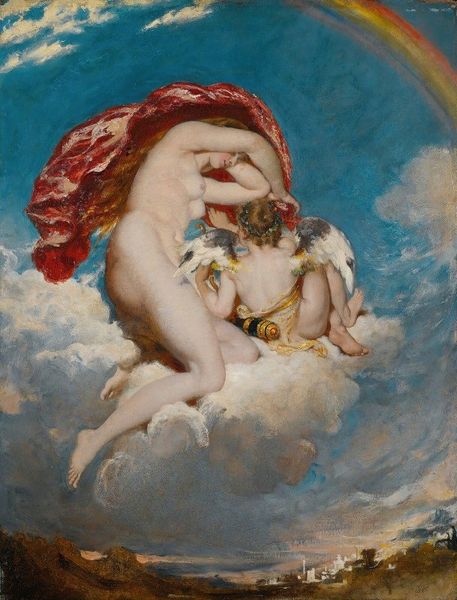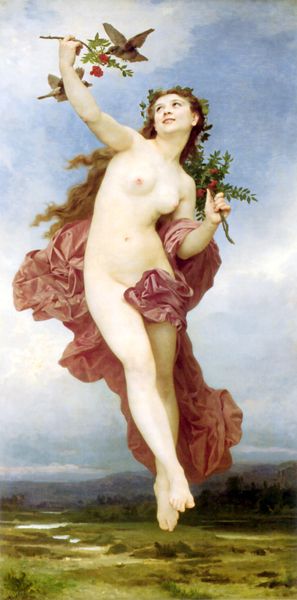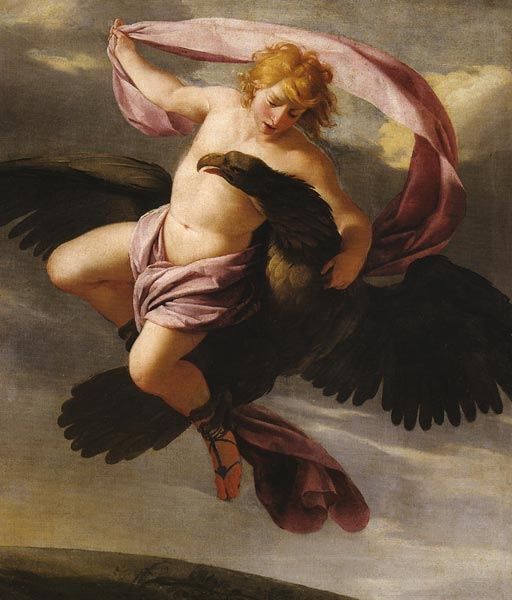
oil-paint
#
allegory
#
baroque
#
oil-paint
#
oil painting
#
mythology
#
nude
#
portrait art
Copyright: Public Domain: Artvee
Editor: We’re looking at "Fortuna with a Purse," an oil painting attributed to Guido Reni. It’s quite striking! I’m immediately drawn to the dynamism - she seems to be swept up in a rush. I wonder, from a historical perspective, how would you interpret this work and its public role? Curator: This work highlights the evolving representation of Fortuna in the Baroque era. What immediately jumps out is the presentation; no longer just a symbol of chance, Reni depicts her actively distributing wealth. Editor: Distributing wealth... I hadn’t thought of it that way. Curator: Indeed. This painting speaks volumes about the relationship between art, patronage, and the perception of wealth distribution at the time. Note how the Cupid figure tugging at her scarf introduces an element of playful, yet calculated intervention. Doesn't it suggest that fortune isn’t entirely random but perhaps swayed? And more critically, who do you think the intended audience for this portrayal might have been? Editor: Perhaps wealthy patrons who wanted to believe their good fortune wasn't just blind luck? Curator: Precisely! It’s also worth noting how paintings like this contributed to the visual culture, shaping public perceptions of power and influence, or even potentially offering a somewhat subversive critique of social hierarchies, don't you think? Editor: I see what you mean. It is much more complex when we think of the historical role of art in reinforcing - or challenging - those power structures! I'll never look at another mythological painting the same way. Curator: That’s the goal! Art never exists in a vacuum. Understanding its socio-political context adds so many more layers.
Comments
No comments
Be the first to comment and join the conversation on the ultimate creative platform.
